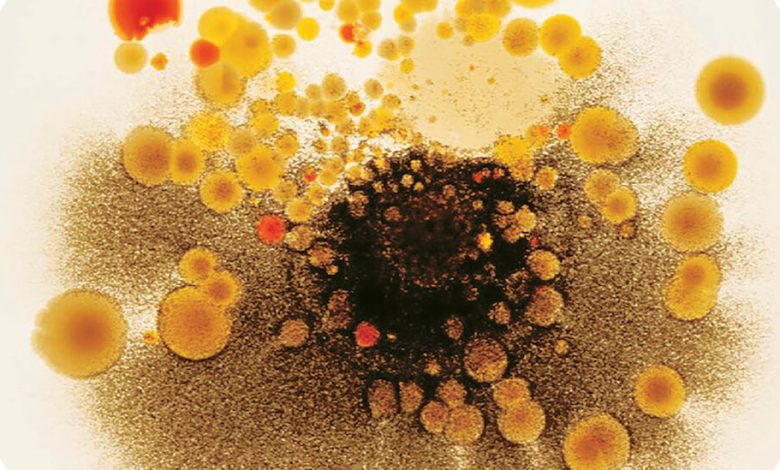Glorious Germs, Ready for Their Close-Up

Open “Micrographia” (1665), the otherworldly illustrated treatise by the microscopist Robert Hooke, and you’ll see why scientists have gone smaller and smaller ever since.
In the latest revelation of the subvisual, BEAUTIFUL BACTERIA: Encounters in the Microuniverse (Rizzoli, $50), Tal Danino, a biomedical engineer and founder of the Synthetic Biological Systems Laboratory, isolates all kinds of bacteria, dyes them, nurtures their growth and photographs them in petri dishes lit into wild neon tondos.
E. coli, blobbed like jellyfish against a multicolored field, recalls the light art of Joshua White. Dental plaque, set against the rich red of “blood agar,” festers into sharp strokes, like calligraphy. Certain probiotics, bubbling and tessellated, evokes Brett Weston’s close-up photos of pan grease.
Danino aims to elevate these lowly creatures — often through imagination, a no-no for scientists. To picture Earth’s earliest life, he prints strains pulled from soil samples in black-and- white on fibrous washi paper, nodding to early daguerreotypes. To convey bacteria’s omnipresence, he discusses a distant future, like Earth’s past, where “microbes might construct and inhabit sprawling cities at vast scales.”
Until then, this is an exercise in aesthetic response. Why do we keep reading man-made things — stained glass, bulls-eyes, sonograms — into these marvelous organic accidents? Maybe we’ve reached a level of Anthropocene where humans dictate not only the habitability of Earth but its legibility, too. Life imitating art, down to its molecules.
